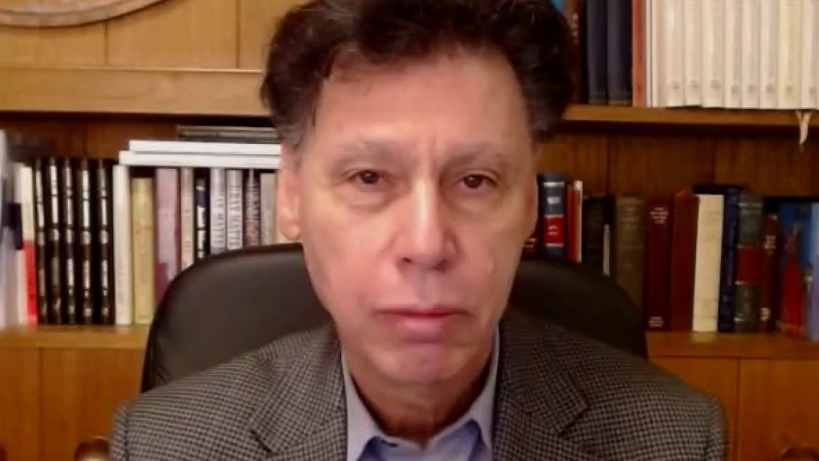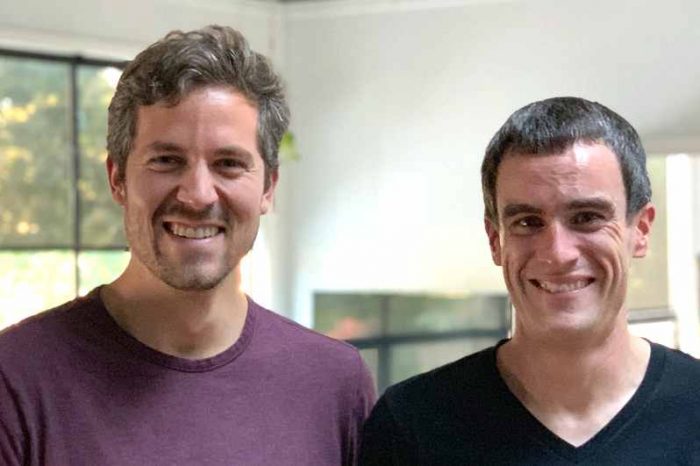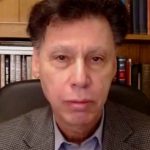Renowned epidemiologist and Yale professor Dr. Harvey Risch says there’s a ‘massive disinformation campaign’ against hydroxychloroquine

In May, Dr. Risch, a renowned epidemiologist and Yale professor, wrote an opinion study titled: “Early Outpatient Treatment of Symptomatic, High-Risk Covid-19 Patients that Should be Ramped-Up Immediately as Key to the Pandemic Crisis.” The study, which was published in the American Journal of Epidemiology, found that early outpatient treatment is the most effective for the treatment of coronavirus patients.
In a 29-page report, the study suggests that early outpatient illness is very different than later hospitalized florid disease and the treatments differ. It also shows that late-stage studies missed the point about the effective usage of hydroxychloroquine. Instead, the author recommends that immediate and early ramping-up of treatment for high-risk COVID-19 patients is key to controlling the coronavirus pandemic crisis.
Almost three months after the study was conducted, the FDA and WHO declared that hydroxychloroquine is “unlikely to be effective” and withdrew its emergency use authorization due to safety concerns. But Dr. Risch is pushing back.
Last weekend, he accused Dr. Fauci and the FDA that they have caused the ‘deaths of hundreds of thousands of Americans’ that could have been saved by hydroxychloroquine. During the interview, Dr. Risch explained that science is so one-sided in supporting the result that hydroxychloroquine is stronger than anything else he has ever studied in his entire career.
“And there’s been a massive disinformation campaign that stretches from the government to the media that’s either suppressing this message, or it is countering it with a false message, and I’m not an expert in the reasons why that’s happening other than just observing it, but I am an expert in the science and I can tell you the science is all one-sided. In fact, science is so one-sided in supporting this result that it’s stronger than anything else I’ve ever studied in my entire career. The evidence in favor of hydroxychloroquine benefit in high-risk patients treated early as outpatients is stronger than anything else I’ve ever studied.”
When asked if people with heart disease or asthma are likely to die or have a certain type of critical reaction to hydroxychloroquine, Dr. Risch replied:
No. The evidence is that healthy people with heart disease generally do fine on this medication. But like any medications, they should be prescribed by a doctor who is actually following the patient, knows the patient, knows what to expect, and is able to monitor them. All medications should be used that way and this is no different.
Dr. Risch concludes that the evidence about hydroxychloroquine is overwhelming. He went on to say that there’s no question that the people who need to be treated and are treated early, it has a very substantial benefit in reducing the risk of hospitalization or mortality.
Below is a video of the interview.
https://youtu.be/UR5cWrIjD5k?t=138
Below is the transcript of the interview.
Professor Risch, how are you, sir?
DR. HARVEY RISCH, PROFESSOR, YALE SCHOOL OF PUBLIC HEALTH EPIDEMIOLOGY: I’m good. Nice to be here.
LEVIN: The question, the question is, you’ve looked I take it at all these studies and what do you conclude?
RISCH: I conclude the evidence is overwhelming. There’s no question that the people who need to be treated and are treated early, it has a very substantial benefit in reducing risk of hospitalization or mortality.
And there’s been a massive disinformation campaign that stretches from government to the media that’s either suppressing this message, or it is countering it with a false message, and I’m not an expert in the reasons why that’s happening other than just observing it, but I am an expert in the science and I can tell you the science is all one sided.
In fact, the science is so one sided in supporting this result that it’s stronger than anything else I’ve ever studied in my entire career. The evidence in favor of hydroxychloroquine benefit in high risk patients treated early as outpatients is stronger than anything else I’ve ever studied.
So scientifically, there’s no question whatsoever.
LEVIN: And most of the studies that are cited by the government scientists and the media are studies that do not treat patients early in the virus, is that correct?
RISCH: It’s either that they cite studies that are hospitalized patients, or they cite studies such as the Boulware studies from Minnesota that treat low risk patients. These are people under age 60 with no chronic conditions and so on, people who will survive the virus just on their own without treatment almost entirely.
And those people, nobody — virtually nobody is hospitalized, so there’s no room to do better when the people who don’t get the medication are already doing as best as one could hope.
So those are low risk people and we’re not talking about treating low risk people. We’re talking about treating people over 60, or with chronic conditions or obesity, diabetes and so on. Those are the people who are at risk of being hospitalized and dying from this illness. Those are the people who have to be treated.
And all the studies, every one of the studies that looks at that group of people has shown benefit. There are no studies in those people that show lack of benefit,
LEVIN: Dr. Anthony Fauci, he has been in the government 52 years. He heads the Infectious Office in the Federal government for a very, very long time, really over three decades. And when he is asked about this during testimony, he absolutely blows off hydroxychloroquine. He says the science is the science.
You tell us the science says yes. He says no. Has Dr. Fauci ever called you and asked you your opinion and why you have the opinion that you do.
RISCH: No. Dr. Fauci has —
LEVIN: And you’re renowned. I’ve done research on your background. You’re a renowned expert. You’re one of the top schools in America.
Let me ask you this. Has the head of the Food and Drug Administration, the F.D.A. ever contacted you and asked you about your review of these various studies.
RISCH: He has not contacted me for that purpose. During the time when the F.D.A. was considering a petition for early use authorization in outpatients of hydroxychloroquine that was submitted by the Henry Ford hospital doctors, during that time, I filed a brief with the F.D.A. demonstrating both the evidence that supports usage and the complete lack of harm, the complete lack of any systematic data that the F.D.A. has said on their website that they don’t have.
Just reading what they say on their website shows that they have no data about adverse events in use in outpatients. He responded, I’ve sent him this by e-mail as well as FedEx and he was responded thanking me for that. That is the only contact I’ve had with him.
LEVIN: So none of the heads of these various government entities have bothered to consult with you. And basically, when you go on these various media programs, particularly on CNN, they spend most of the time reclaiming their time and interrupting you and making it impossible for you to explain why you have the position that you have.
And when we come back, I want to spend a little bit more time looking at these studies.
We’ll be right back.
(COMMERCIAL BREAK)
LEVIN: Welcome back. Dr. Harvey Risch is an expert, epidemiologist from Yale, a PhD, a doctor. Doctor, I want to ask you this question, people with heart disease or asthma, are they likely to die or have a certain type of critical reaction to this drug?
RISCH: No. The evidence is that healthy people with heart disease generally do fine on this medication. But like any medications, they should be prescribed by a doctor who is actually following the patient, knows the patient, knows what to expect, and is able to monitor them. All medications should be used that way and this is no different.
But in general, this is a very safe medication. The medication itself has, in some people, perhaps 10 percent of normal people can change the pacing of the heart muscle contractions, called the heart rhythm. That change has only measurement value.
In other words, if you measure it on electrocardiogram, you can see it. It has essentially no bearing for almost everyone who has that as to any risks for real arrhythmia that has potentially life threatening consequences. It is very, very, very low risk.
LEVIN: It’s interesting you should say that. On May 15th, The Washington Post, “Drug promoted by Trump as coronavirus game changer increasingly linked to deaths.” That was the headline that was blared. Is that true? It’s increasingly linked to deaths and what’s their data for this?
RISCH: First of all, it doesn’t say in which patients. If you’re talking about very sick hospitalized patients who get it as a last ditch effort, because nothing else is working, then there might be some relationship like that.
If you’re talking about healthy outpatients who are getting it among for example, the 10 billion people who have gotten this over the last 65 years, there’s no relationship at all.
And so you have to be very specific about who you’re talking about when you make statements like that.
LEVIN: You know, again, as a pedestrian, I am no expert, but I read the various reports. I read what you write and I draw my own conclusions from this. It is incredible to me that in the middle of this pandemic, that a drug that has been used for over half a century, where the testing has been so thorough and it’s been ubiquitous, and it’s so cheap, each pill is very, very cheap, that there is this effort to fight it and fight it and to destroy the doctors and the experts who dare to suggest that in the early stages, even maybe as a prophylactic, you might want to use this if it’s prescribed by a doctor.
Now pharmacists are afraid to provide it and now doctors are concerned to prescribe it and hospitals — some hospitals won’t prescribe it, and this has been politicized in an incredible, incredible way.
And you right here, wait a minute, this drug can save thousands and thousands of lives. Have you ever seen anything like this?
RISCH: Never. Never. No. That somehow we’ve let politics overrule science, and it’s an absurd situation that people have compared this to 1984 and the Ministry of Truth and so on that’s limiting what people can say on objective facts. It’s beyond belief.
LEVIN: And I watch when you do interviews when other networks, the so- called news hosts are literally angry at you. They’re shouting you down. They’re interrupting you. They won’t even let you make your case. That seems a little odd, too, doesn’t it?
RISCH: Well, here’s the thing. I think they know that the treatment works. I think that basically, they’re afraid to even let it be tried, because letting it be tried would show that it works.
So the message has to be shut at all costs because anything will leak out and in fact, it is leaking out, and you see across the country, people who started to speak up, who’ve become almost deathly ill and have been turned around in three days or sooner even, and these are now public figures who are speaking up, who’ve said that the medicine saved their life.
And it’s very difficult to, you know, close all the leaks in that dike that are being suppressed by the media that are trying to do that.
LEVIN: But it’s also being suppressed by individuals in these various scientific and medical communities and the Federal government who have been around a very long time, the bureaucrats, if you will, who are claiming that they’re the ones following the science and you and people like you are not following the science.
And when we come back, I want to ask you about that as a professional, as an expert, a man who has been in this field for decades, what can be done when the bureaucrats in the Federal government who are backed up by the media because, you know, from a political perspective, this is this is how they approach it — what can be done in the private sector when you have experts, when you have people, professors at universities, doctors who have been practicing who say, hey, wait a minute, we need access to this drug. Our patients need access to this drug.
We’ll be right back.
(COMMERCIAL BREAK)
LEVIN: Dr. Harvey Risch, let’s focus in on the F.D.A. The F.D.A. is a huge bureaucracy. It’s almost a dinosaur.
Things are slowed down, they’re chewed up. The President has made efforts to speed up certain types of lifesaving drugs for people who are in extremis.
I feel like that’s what’s happening to this drug. It’s being chewed up by the F.D.A. What do you make of this?
RISCH: So the F.D.A. is a very strange organization that has a history of not making science based rational based decisions about its approvals.
This was started, and most noticeably in 1987, when people with AIDS in New York City were dying of what is called pneumocystis pneumonia, PCP, and the clinical experience then had been amassed. A large number of cases who were prevented from dying by use of the antibiotic, Bactrim. This is even then was a generic medication and cheap.
And activists obtained a meeting with Dr. Fauci and 15 of his selected scientists at F.D.A., at N.I.H. and asked Dr. Fauci just to make guidelines to physicians that they consider using Bactrim to treat preventively AIDS people so that they wouldn’t die of this pneumonia. Dr. Fauci refused.
He said, I want randomized, controlled, blinded, controlled trial evidence. That’s my gold standard. That or nothing.
The activists left. The N.I.H. did not fund any randomized trials. They raised money themselves from their own AIDS patients to collect the data to do a randomized trial.
It took them two years. They came back to Dr. Fauci.
During those two years, the F.D.A. approved AZT as a treatment for AIDS, AZT works, but not completely. It needs other medications as well.
And during the two years that it took them to get this data to come back to Dr. Fauci to support using Bactrim, 17,000 people with AIDS died because of Dr. Fauci’s insistence on not allowing even a statement supporting consideration of the use.
This has gone on before. Now, we have Dr. Fauci denying that any evidence exists of benefit, and that’s pervaded the F.D.A. The F.D.A. has relied on Dr. Fauci and his N.I.H. advisory groups to make a statement saying that there is no benefit of using hydroxychloroquine in outpatients.
And this is counter to the facts of the case. The evidence is overwhelming.
The F.D.A. has also said that there is the harm of using these medications in outpatients overweighs the benefit; and in fact, they’ve said this with no information, no evidence whatsoever of any harm in outpatient use, and this is provable both by the fact that the F.D.A.’s webpage says as a warning against outpatient use, but says it relies on inpatient hospital data, which means they don’t have any outpatient data.
As well as the fact that 90 percent of the cases of COVID this year have occurred since the time that the F.D.A. restricted usage to inpatients only.
So the F.D.A. knows that it has no data for outpatients and no data on harm and yet, it denied the Henry Ford petition for outpatient usage.
Dr. Fauci and the F.D.A. are doing the same thing that was done in 1987 and that’s led to the deaths of hundreds of thousands of Americans who could have been saved by usage of this drug.
And this is the same thing that the F.D.A. has done. It’s outrageous. People need to be writing or calling their congressmen and senators and complaining that this is not the way the country should work. That a bureaucracy that’s in bed with other forces that are causing them to make decisions that are not based on the science that is killing Americans is not acceptable.
LEVIN: Well, at a minimum, they ought to be reaching out to experts like you and experts all over the country who have something to contribute to this.
I mean, after all, it’s a pandemic, and constantly going on TV and telling everybody to wear a mask over and over and over again, and social distancing that doesn’t sound very scientific to me.
I want to thank you, Dr. Risch, for your courage, for your insight for publishing what you’re publishing. I know that it can’t be easy, and — but it’s a very, very important public service. God bless you.
RISCH: Thank you.

